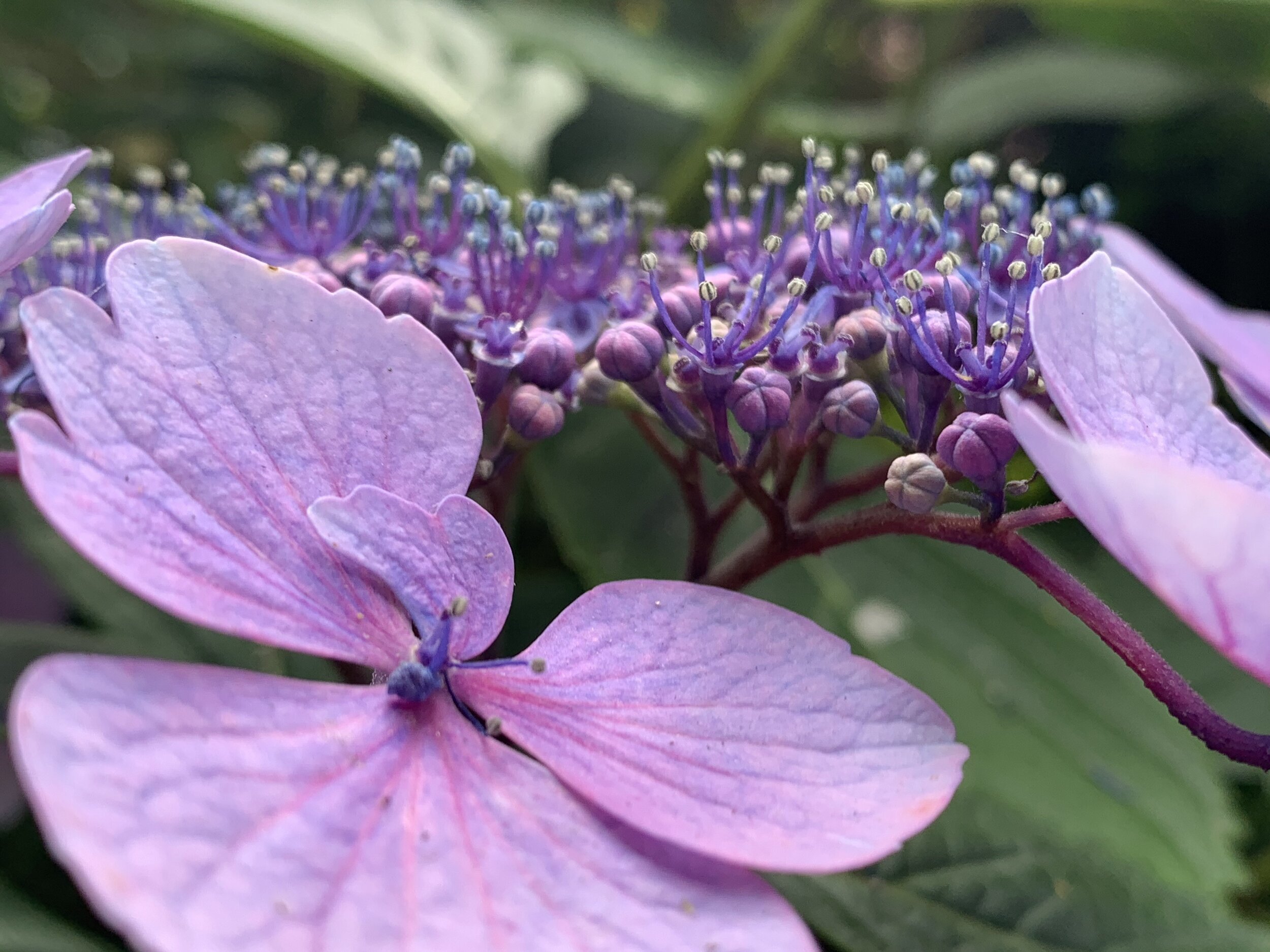The Double Refuge 🎲 Almost Existential
Petals
Poetry - Petals - Before the Garden Frost
🎲
Poetry
Although it has been justly said that poetry, alas, is dead,
I cannot help but toss another marble violet on the grave,
and think that words arranged precisely on the page
will save those prayers whose crystal splinters
were hidden among the ruined frost
in a world in which we thought all harmony was lost.
Weeping angel and Keats’ grave (right) in the Protestant Cemetery in Rome (photo RYC). “Here lies one whose name was writ in water.”
🎲
Petals
In a Station of the Metro
The apparition of these faces in a crowd;
Petals on a wet black bough. (Ezra Pound, 1913)
Picking one God over another is like choosing between water and the sun: both in their own way are supreme, and we can't live without either. They give to us and we give nothing back.
Laozi says the Dao is like water, and Saint Francis says that God is like the sun. But they couldn't have thought these things without the earth, its mineral strength and gem-like charm.
All three, a trinity of sorts, come together in the petal that shoots from the black bough, or the apple that grows outward from the seed.
In Nausea, Sartre sees the black root of a chestnut tree as if it were a snake: alien, almost evil. The early Christians saw the snake as Satan, offering knowledge as a curse. The poet, on the other hand, refuses to pick between the water, earth, or sun, and sees instead the petal, the form of a human face hovering above it, like an apparition.
🎲
Before the Garden Frost
My long two-pointed ladder’s sticking through a tree
Toward heaven still,
And there’s a barrel that I didn’t fill
Beside it, and there may be two or three
Apples I didn’t pick upon some bough.
But I am done with apple-picking now.* *complete poem below
What is this magic that gives us feeling? Here on Earth, trillions of miles from sentient life, we scent the apples and the frost not yet on the ground, and breathe in deep the beauty of the setting sun. What purpose brought that hither?
Even Jean-Paul’s black and noxious root slithering from the earth, and the slings and arrows of Hamlet — the brutal depression, the rottenness of the State — impress upon us the possibility of something else: a majestical roof fretted with golden fire.
All the reasoning in the world, and all the star charts and Venn diagrams behind the back of Whitman’s learned astronomer (as he lectures for ten thousand hours on co-sine and curve, trajectory and co-efficient) only makes us want to know all the more what he’s talking about, as we wander out from the lecture hall into the mystical moist night-air, to stand in the middle of the apple orchard, scenting the bosc and golden delicious, and look up in perfect silence at the stars.**
Amid all the absurdity and violence — the evening strollers mowed down on the esplanade of Nice, Sandy Hook, the bombs on the London metro — Pound’s petals still lie on the wet black bough.
The ladder of Robert Frost points to Heaven still.
I am not done with apple-picking now.
———
* Robert Frost’s “After Apple-Picking” (1913)
MY long two-pointed ladder’s sticking through a tree
Toward heaven still,
And there’s a barrel that I didn’t fill
Beside it, and there may be two or three
Apples I didn’t pick upon some bough.
But I am done with apple-picking now.
Essence of winter sleep is on the night,
The scent of apples: I am drowsing off.
I cannot rub the strangeness from my sight
I got from looking through a pane of glass
I skimmed this morning from the drinking trough
And held against the world of hoary grass.
It melted, and I let it fall and break.
But I was well
Upon my way to sleep before it fell,
And I could tell
What form my dreaming was about to take.
Magnified apples appear and disappear,
Stem end and blossom end,
And every fleck of russet showing clear.
My instep arch not only keeps the ache,
It keeps the pressure of a ladder-round.
I feel the ladder sway as the boughs bend.
And I keep hearing from the cellar bin
The rumbling sound
Of load on load of apples coming in.
For I have had too much
Of apple-picking: I am overtired
Of the great harvest I myself desired.
There were ten thousand thousand fruit to touch,
Cherish in hand, lift down, and not let fall.
For all
That struck the earth,
No matter if not bruised or spiked with stubble,
Went surely to the cider-apple heap
As of no worth.
One can see what will trouble
This sleep of mine, whatever sleep it is.
Were he not gone,
The woodchuck could say whether it’s like his
Long sleep, as I describe its coming on,
Or just some human sleep.
** Walt Whitman’s “When I Heard the Learned Astronomer” (1865)
When I heard the learned astronomer;
When the proofs, the figures, were ranged in columns before me;
When I was shown the charts and the diagrams, to add, divide, and measure them;
When I, sitting, heard the astronomer, where he lectured with much applause in the lecture-room,
How soon, unaccountable, I became tired and sick;
Till rising and gliding out, I wandered off by myself,
In the mystical moist night air, and from time to time,
Looked up in perfect silence at the stars.
🪐
Next: The Mermaid: Existential & Then Some - The Epic Heroine





